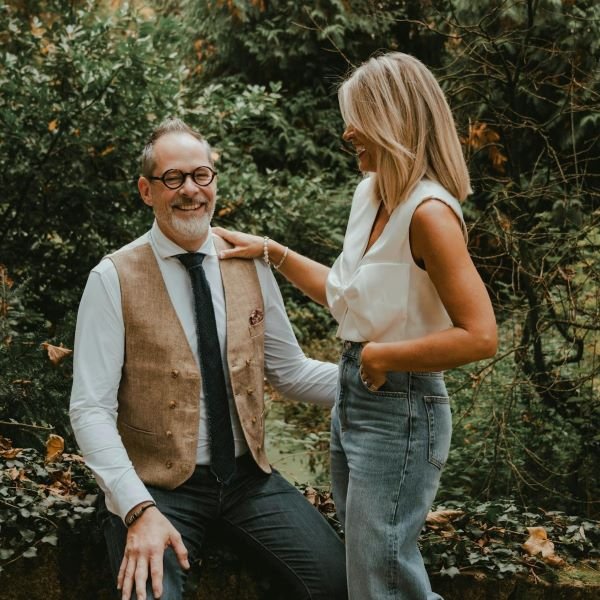Introduction
At first, I thought love was just enough in my relationship. You know that initial excitement, and feeling so close with someone— I believed it would last forever. However, as days turned into years and the demands of work and daily routines took hold, it became apparent how simple it is for a relationship— to fall into a comfy pattern that might get a bit dull. This led me to an interesting discovery: relationships need more than just love. They actually require continual work. Getting too comfortable is like a hidden danger for long-term relationships.
Complacency doesn’t just pop up suddenly with big fights or major problems. Instead, it creeps in quietly through small things— forgetting to say thanks, missing those deep talks, or putting off time together because “we’ll do it later.”
I’ve seen how this subtle drift can make even strong couples feel far apart. That’s why I decided to treat my relationship like a garden. You know? If you don’t water it, take care of it, and protect it, weeds— in this case complacency— will eventually take over. So here I wish to share some insights about how to prevent complacency in relationships so that one can enjoy a long-lasting romance! Such information isn’t just theory but practical knowledge from personal experience that has strengthened not only love but also companionship for me.
Table of Contents
Recognizing the Signs of Complacency
Initially, one had to become adept at detecting complacency in the romance. At first, it was easy to dismiss small issues: occasionally missing a date or assuming one’s partner knew how much they were valued without saying so. However, over time those seemingly minor things accumulated; and the feeling within the connection shifted. This individual noticed complacency creeping in when conversations shifted towards logistical matters rather than aspirations; or when expressions of affection became more routine and less intentional.
What helped was paying closer attention to daily interactions. Were they still making eye contact during conversations? Did they laugh as much as before? Did they surprise each other with small gestures? If the answers leaned toward “no,” it was a sign that needed refocusing. Just being aware of these patterns helped avoid ignoring them until they became bigger problems. Recognizing complacency early gave them the chance to address it before it caused real distance.

Keeping Communication Fresh and Meaningful
The way couples communicate seems to be one of the easiest places for complacency to appear. Researchers have noticed that couples fall into a rut with their chat-becoming very predictable over time. For example, “How was your day?” “Did you pay the bills?” “What’s for dinner?”
Of course these things matter, but they don’t do much for building real closeness. It occurred to me that in order to maintain a level of novelty in our communication, I would have to pose questions that were more significant like “Has anything happened today to inspire you?” or “Are there any dreams that you have not shared with me?” Occasionally we would go for evening walks without our phones and just talk. Such discussions rekindled those feelings of initial attraction and curiosity towards one another, which we had now lost. Essentially, communication became central to the relationship; putting effort into it helped avoid the dullness into which complacency leads all too easily.
Making Time for Romance
Sometimes people think romance goes away with time; the couple just stops loving each other. Still perhaps it fades when they stop trying as hard? I must admit there were moments when I thought huge romantic gestures were only necessary early on. But I quickly realized that long-term love needs regular doses of romance too. Occasions do not have to be big, dramatic ones all the time– sometimes leaving a note in one’s bag or planning a surprise dinner can be enough. Even just lighting a candle during an ordinary meal makes things special!
The main thing was realizing romance isn’t about how big the gesture is but more about what you think while doing it. I began noticing how even tiny things like holding hands out in public or sending a nice text midday created sparks. Romance is what reminds couples they’re not just living together for convenience— but because they love each other! By keeping romance going, I found its much harder for complacency (taking things for granted) to settle in; the relationship always felt alive and done on purpose.

Prioritizing Quality Time Together
It’s so important to make time for each other on purpose. Life gets crazy busy, and why not schedule intentional moments? Days turn into weeks without real connection– that’s a problem! It hit me one day that my partner and I were just coexisting under the same roof. We’d be glued to our phones, watching different things, or dealing with chores separately. I began feeling that quality time was a dwindling resource– moments when we could tune out distractions (like those aforementioned devices) and focus solely on each other.
This sometimes meant setting date nights in stone; other times it was as simple as cooking one of those special meals that makes screens irrelevant. Other times we tried something new: going for a walk along an unfamiliar path or enrolling in a course. The interesting thing we discovered is that making time for each other led to feeling connected more often than not. Relationships can grow complacent if they’re left to their own devices (so to speak). But if people make an effort to show they care you tend to feel happier and closer. For me, spending time together wasn’t just clock-watching: it meant fully engaging with one another.
Expressing Gratitude and Appreciation
With complacency, there is a risk of failing to value one another as the relationship goes along; I only saw this once I realized that lots of times my partner would do things like bringing food or running errands, and I wouldn’t say thank you. Eventually, little things like that might make someone feel like they’re not really seen. This led me to make a daily effort to express gratitude— not only for significant things but for minor ones too.
I paid more attention to saying “thank you,” gave genuine compliments, and noticed the effort my partner contributed. The outcomes were positive— it made him feel appreciated and reminded me how fortunate I am to have him. Focusing on what there is (instead of constantly wanting more) can be switched with feelings of thankfulness– which also helps put things into perspective. In my experience, gratitude is an effective weapon against complacency.

Continuing to Grow Individually and Together
It is surprising how necessary personal growth is in preventing a relationship from becoming stale. After all, if individuals in a relationship are not growing personally– whether by advancing in their jobs, taking up new hobbies, or working on self-improvement– the connection between them can begin to feel stuck as well.
I’ve discovered that when you keep developing as an individual you bring back new energy and perspectives! We also made a commitment to grow together– setting shared goals, for instance saving for a trip, learning something new, or getting healthier. Having something to work towards as a team keeps your partnership dynamic: growth stops things stagnating because it means the relationship itself isn’t static; always evolving (and moving forward). In my case staying curious both about myself and my partner helped keep things exciting.
Embracing Playfulness and Fun
Another surprising but essential strategy was keeping playfulness alive. It’s easy to let seriousness take over when life gets stressful; however laughter and fun are important for keeping relationships feeling light. I started realizing that some of our best moments were simply being silly together— having tickle fights or making inside jokes because we sang so badly in the car! These playful breaks spiced up daily life reminding us how joyful it is just being close. Playfulness also helped us reconnect during tough times.
Humor became a cool way to ease tension bring us back together. I realized stopping complacency isn’t only about doing huge things— it’s also about laughing lots staying lighthearted, and remembering not to take ourselves too seriously. That sense of fun was what kept us from slipping into a dull routine and helped us feel more alive in our relationship.

Being Intentional About Physical Intimacy
Lastly I discovered that you cannot just take physical intimacy for granted! Like emotional connection, it requires effort: over the years your bond may naturally change– but if you work at it there is no reason why it should fade altogether. We also realized that when this part of a relationship is neglected, feelings can drift even if everything else appears fine.
To stop ourselves from becoming complacent we chose to be more intentional about our intimacy. It wasn’t just about rekindling passion– although that was an important aspect– but also focusing on affection; lots of hugging holding hands cuddling up touching one another in everyday ways. Sometimes this meant deliberately setting aside time for sex rather than waiting for “the right mood” to materialize. What mattered was making closeness a priority.
Conclusion
I’ve found that couples don’t fall into a rut because they stop loving each other. Rather, it happens when they fail to express that love day in and day out. To prevent this from happening, you must make a conscious choice every single day to keep your relationship feeling meaningful— as well as exciting and alive. The tips I give you? They aren’t quick fixes: from gratitude and communication to intimacy and playfulness, these things must be practiced again and again.
Personally, I’ve discovered that when you treat your partnership like a plant (i. e., something needing regular attention), it really thrives. The truth is love needs work: attention, creativity, and care. But the effort you put in pays dividends as you create a bond that gets better over time— growing deeper, stronger, and more satisfying!
FAQs
Q1: How can one stop feeling complacent in a relationship?
A1: One way is to ask yourself if you’ve noticed anything lately– like the romance drying up, conversations becoming repetitive, or realizing you’re just another person in their day.
Q2: Recognizing these kinds of signs makes it easier to fix things early on. But how often should couples spend quality time together for a strong bond?
A2: While there are no rules, experts say regularly scheduled “us time” is key– think weekly date nights or at least daily check-ins.
Q3: And can a relationship recover from that dull phase it sometimes falls into?
A3: Absolutely! With effort, good communication, and doing things differently on purpose, couples can totally bring back the spark.
Q4: Are big romantic gestures important though?
A4: Sure, they can be fun. Nonetheless it’s the consistent small gestures like gratitude affection and time together which matter most over extended periods.
Q5: In what ways does personal growth influence relationships? A5: When both individuals continue to develop both individually and as a couple they gain new energy for their relationship thus preventing it from feeling stale or lacking vitality.



